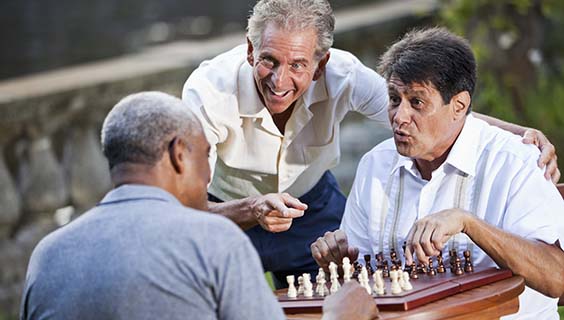How the Aging Brain Affects Thinking

The brain controls many aspects of thinking — remembering, planning and organizing, making decisions, and much more. These cognitive abilities affect how well we do everyday tasks and whether we can live independently.
Some changes in thinking are common as people get older. For example, older adults may:
• Be slower to find words and recall names • Have problems with multitasking • Experience mild decreases in the ability to pay attention
Aging may also bring positive cognitive changes. For example, many studies have shown that older adults have larger vocabularies and greater knowledge of the depth of meaning of words than younger adults. Older adults may also have learned from their many years of accumulated knowledge and experiences. Whether and how older adults apply this knowledge, and how the brain changes as a result, is an area that researchers are actively exploring.
Despite the changes in cognition that may come with age, older adults can still do many of the things they have enjoyed their whole lives. Research shows that older adults can still:
• Learn new skills
• Form new memories
• Improve vocabulary and language skills
How the brain changes as people age
As a person gets older, changes occur in all parts of the body, including the brain.
• Certain parts of the brain shrink, including those important to learning and other complex mental activities.
• In certain brain regions, communication between neurons may be less effective.
• Blood flow in the brain may decrease.
• Inflammation, which occurs when the body responds to an injury or disease, may increase.
For details on how the aging brain affects thinking, from the National Institute on Aging, CLICK HERE.
